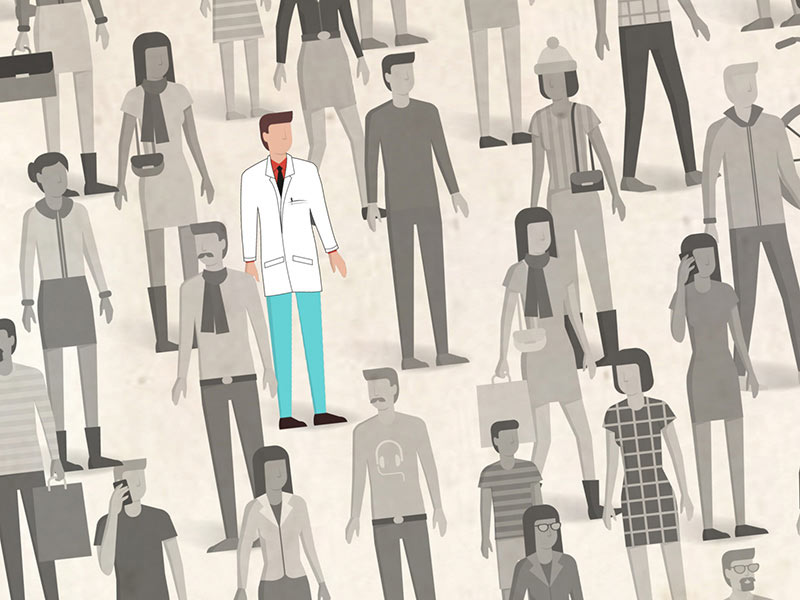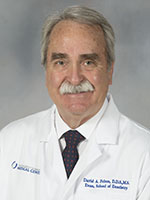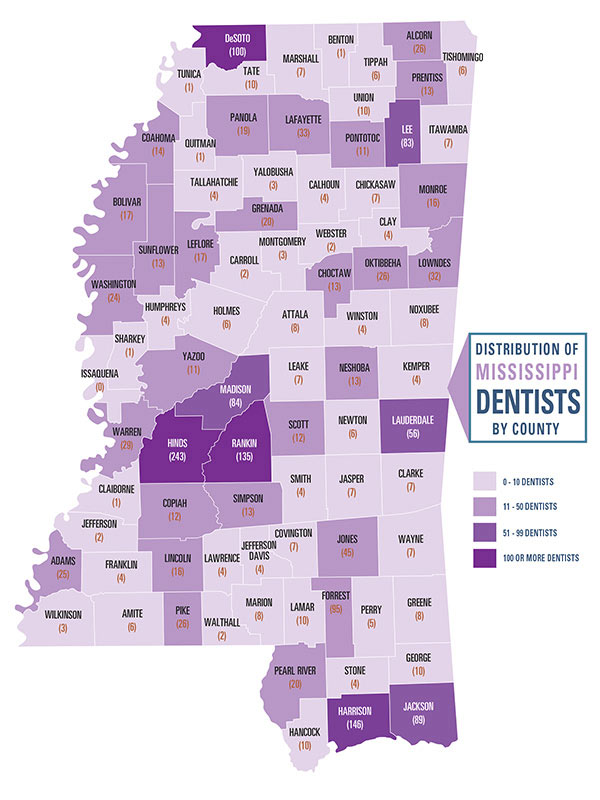
School works to fill Mississippi's dental gap
By: Alana Bowman
EDITOR’S NOTE: This story originally appeared in the Fall 2018 edition of Dentistry, the magazine for University of Mississippi School of Dentistry alumni.
Only one state has a worse patient to dentist ratio than Mississippi, and that’s Arkansas. For every active, licensed dentist in Mississippi, there are 2,120 residents.
When one considers that most of Mississippi’s dentists are concentrated in the larger cities – near Memphis and Jackson – access to dental care in the state’s more rural areas looks grim.
Maybe that is why Mississippi scored a zero percent overall on Oral Health America’s Wisdom Tooth Project reported in the 2018 volume of “A State of Decay.” The publication reports oral health status of Americans 65 and older.
For the 2018 report, states were analyzed on whether they had a state oral health plan that includes SMART objectives and have developed and completed Basic Screening Surveys that include older adults. Data from the Centers for Disease Control and Prevention on severe tooth loss and community water fluoridation and data about adult Medicaid dental coverage were factors in the evaluation as well.
Mississippi earned a “Story Spotlight,” but it wasn’t for positive reasons. The report stated that 55 percent of older adults in Mississippi have severe tooth loss. Tooth extractions are the only dental procedure for adults with Medicaid coverage in the state.
The report did look favorably on Mississippi’s State Oral Health Plan published by the Mississippi State Department of Health. The plan encompasses a five-year period of 2016-2021 and outlines efforts to “create a culture of health that includes oral health.”
The plan states that the “connection between oral health and general health reinforces the importance of oral health care as an essential component of health programs and policies.”
However, no amount of education about the importance of fluoridated water and twice-yearly checkups will help the Mississippian whose closest dentist is 50 miles away. The report applauded the state for efforts to “make the most of a challenging situation.”
Breaking down the numbers reveals the situation is worsening, not improving.
The dean of the University of Mississippi School of Dentistry, Dr. David Felton, says the school can’t accommodate more than 40 students per class.

“We have no capacity to expand our program,” said Felton. “Our limitation is the simulation lab. It will hold 40 students. We can’t take 41.”
Felton said that the school is positioned to graduate approximately 118 new dentists in the next four years, taking into consideration the percentage of students who leave the state to practice.
An estimated 192 dentists will retire during the same four-year period. According to the Mississippi State Board of Dental Examiners website, nearly 14 percent of Mississippi’s active, licensed dentists are 65 or older. Felton said many dentists consider their practice to be a retirement nest egg to be sold to a young dentist just entering the field, but selling may be a challenge.
“Who are they going to sell it to?” Felton said. “There’s not a lot of people moving into Mississippi with dental licenses.” The future dental workforce will have to be the result of in-state training. Felton saw a similar scenario play out during his time at West Virginia University School of Dentistry.
“When I left West Virginia, there were six dentists who closed their offices because they could not sell them,” Felton said. “When they retired, they just closed [the practice] and walked away.”
The state’s oral health plan outlines 10 essentials for promoting oral health in Mississippi, and one of those is to “assure an adequate and competent public and private oral health workforce.”
This is important for a number of reasons, explained in the oral health plan as the health ramifications of oral disease in Mississippi, based on 2015 figures. A quarter of adults 65 or older have no teeth. More than 400 new cases of oral cancer are diagnosed each year, and 590 adults died from oral cancer between 2008 and 2012. Forty-four percent of adults have not visited a dentist in the past year.
Almost 31 percent of Mississippi’s third graders had untreated tooth decay.
Poor oral health affects diet and nutrition. People who have lost their teeth prefer softer foods over fresh fruits and vegetables.
Neglecting one’s teeth leads to higher medical bills, according to United Healthcare’s Medical Dental Integration Study. The study found that members of the United Healthcare group who received frequent dental cleanings spent $10,395 less on health care than any other dental treatment group. In fact, those who received regular preventive dental care spent less even if they were non-compliant with their medical treatment plan.
The cost savings were observed in patients with chronic medical conditions such as diabetes, asthma, congestive heart failure, coronary artery disease and chronic obstructive pulmonary disease. According to the Mississippi State Department of Health, heart disease, COPD and diabetes are three of the seven leading causes of death in Mississippi.
Medical costs associated with heart disease and diabetes are expected to rise 70.3 percent and 67.9 percent respectively by 2020. Access to regular dental care can have a positive effect on the state’s health care spending.
Core Area 3 of the state’s plan is to address the workforce shortage. As the only dental school in the state, that burden falls largely on its shoulders.



